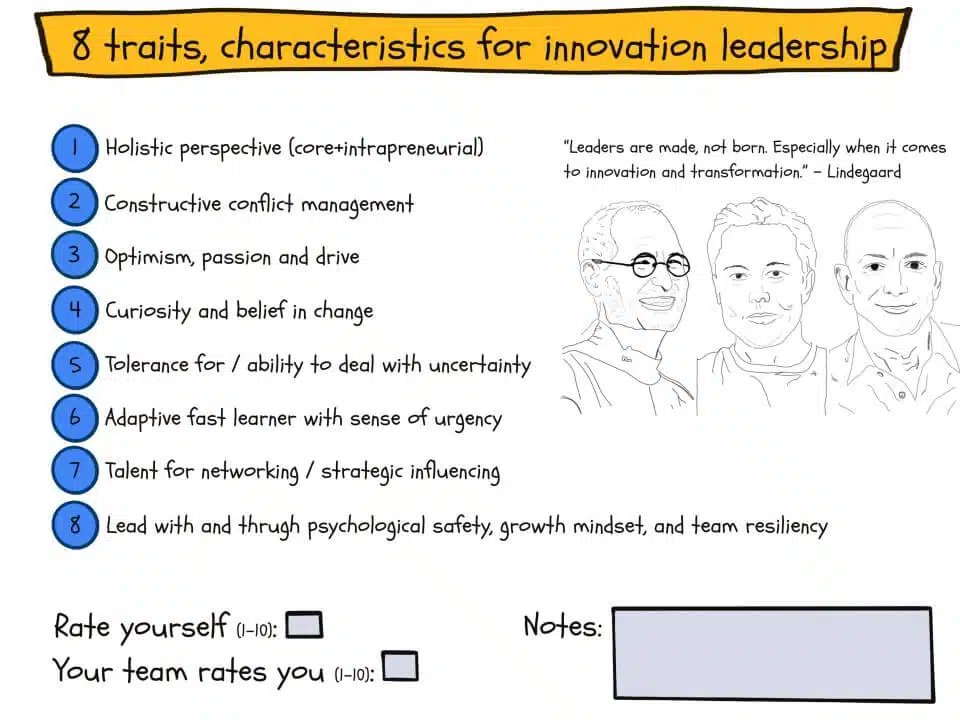The demand for highly skilled and adaptable professionals has never been greater. As businesses navigate the complexities of the Fourth Industrial Revolution (4IR) and the Digital Era, they require graduates equipped not only with technical expertise but also with the soft skills and innovative mindsets necessary to thrive in this dynamic environment. This reality presents a significant challenge for higher education institutions, particularly business schools, tasked with preparing students for the multifaceted demands of the modern workforce. Hoosen Essof (Regent Business School’s Head of Employability) delves into the critical role of business schools in shaping the future of business leadership. From the importance of soft skills to the power of ideation and innovation, he explores how forward-thinking institutions can and should be embracing change, fostering creativity, and empowering graduates to excel in the ever-changing landscape of global commerce.
Imagine being faced with the task of selecting between two candidates whose academic credentials are equally impressive, yet you can only accommodate one. What criteria would you employ to make this decision?
According to a 2021 Harris Poll survey, 81percent of businesses prioritise soft skills, such as adaptability, communication and problem-solving, over technical expertise1. These skills enable graduates to thrive in a rapidly changing and competitive business environment.
Generally, employers seek graduates with a diverse set of skills and attributes to meet the ever-evolving demands of the workforce. According to the National Association of Colleges and Employers (NACE)2 and other surveys3, 4, 5, 6, 7, employers value skills and qualities such as: leadership, problem-solving ability, adaptability, teamwork, communication, analytical and quantitative skills, initiative and self-motivation. Together with soft skills, these are described as 21st century transversal skills or cross-functional competencies.
“You don’t hire for skills, you hire for attitude. You can always teach skills.” Simon Sinek
In essence, employers are seeking graduates who possess a combination of technical expertise, soft skills and personal qualities that enable them to thrive in a rapidly changing and competitive business environment. These skills and attributes are highly valued and can significantly enhance a candidate’s employability and long-term career prospects. But how do you prepare graduates for the world of work beyond academic achievement?
Disrupt. Rethink. Innovate.
Business schools play a pivotal role in this regard. Institutions must recognise the imperatives of the Fourth Industrial Revolution (4IR) and the Digital Era. Schools should be exploring pedagogical methods that integrate academic programs with hands-on, real-world experiences which at first glance seems out of place for a business school.
Take, for instance a trailblazing technology-related hub established at Regent Business School called the iLeadLAB which in effect is a Makerspace (a place for making, exploring and using high tech tools). Through the auspices of these labs, students are encouraged to adopt a hands-on approach and are taught various technological skills that synergise with industry needs, specifically in commerce, finance and business. Five such iLeadLAB’s have been established across various Regent Business School campuses in Southern Africa, each one equipped with laser cutting machines, 3D printers, sublimation equipment, high-spec computers, VR sets, and electronic and robotic kits. In preparing students for the new world through new integrated core curriculums, higher education institutions can equip students with technological skills for a disruptive 21st century.
The Power of Ideation and Innovation
Labs such as these represent an ecosystem where academic theory meets real-world application. They are purpose designed to foster a culture of ideation, innovation, and experimentation, essential traits for future business leaders.
The Ideation Process
The ideation process typically involves a series of stages, including brainstorming, prototyping and refining. It is centred on collaboration, creativity and critical thinking.
Ideation is crucial to remain competitive and relevant. Fostering a culture of ideation not only increases but also uncovers unexpected opportunities that can bring together different perspectives and new ways of thinking9.
The Innovation Process
The innovation process is a systematic series of strategic steps that lead to the development and implementation of new ideas, products, services or solutions. It includes idea generation, idea screening and evaluation, development of solutions and commercialisation and implementation11.
Innovation is not a one-time event but a continuous journey. Creativity is a critical component of the innovation process, enabling one to generate new ideas, overcome challenges and finding unique solutions to complex problems12.
Leadership Traits
According to the Harvard Business Review13, 14 innovative leaders commonly demonstrate that they are willing to take calculated risks to pursue innovative opportunities. They maintain a curious mindset, constantly seeking new knowledge and insights. They exhibit courage in the face of uncertainty and adversity, inspiring their teams to do the same. Leaders have a keen eye for identifying and capitalising on opportunities for innovation and growth; they also build and maintain a strong network of relationships, both inside and outside their organisations, to stay informed and gain diverse perspectives.
This is further collaborated by Y Scouts15 – the executive search firm that specialises in delivering purpose-aligned and performance-proven leaders – who assert that innovative leaders often possess characteristics such as: risk tolerance i.e. comfortable with taking risks, as innovation often involves a degree of uncertainty; domain expertise, manifesting in a deep understanding of their industry; openness to new ideas by fostering an innovative climate; low anxiety and emotional stability; and confidence in their ability to succeed, even in the face of unknown risks.

Higher education institutions have a significant responsibility to prepare students for the complex demands of the 21st century. This includes not only equipping students with the necessary content knowledge but also with the critical 21st century skills, such as critical thinking, communication, collaboration, creativity, problem-solving and adaptability16. By focusing on these skills through intentional curricular design, pedagogical approaches and assessment strategies, higher education can better prepare students for success at university, career and life.


